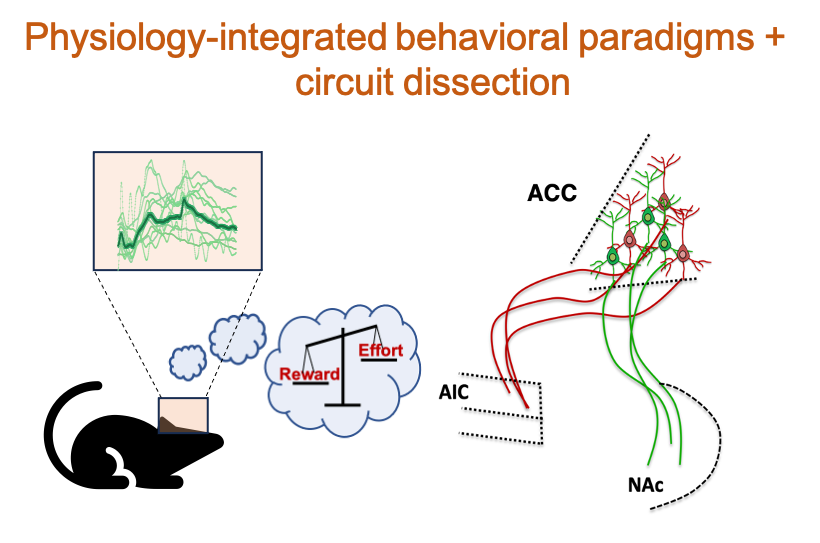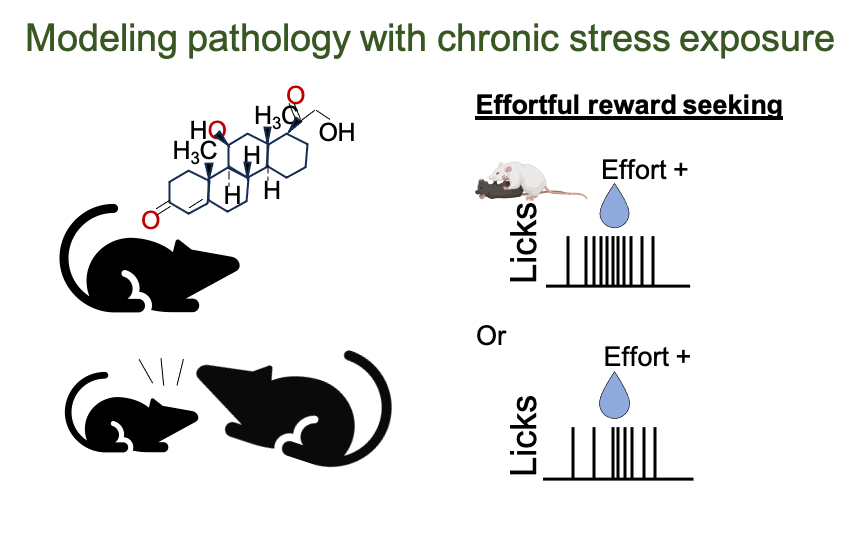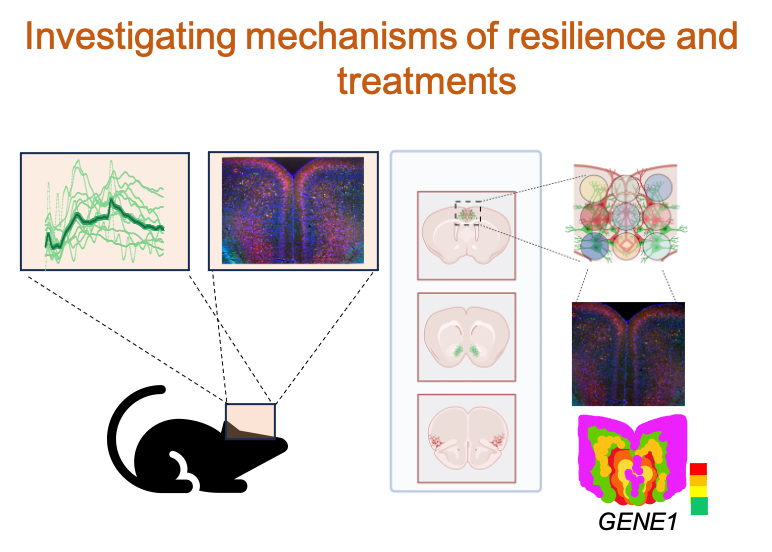Research
Current Projects

Identifying the neural circuits that support adaptive behavior
Methods: Calcium imaging, Fiber photometry, Optogenetics
Rationale: The ability to integrate information to drive high utility behavior is ubiquitous and critical for survival. Individuals must continually update and weigh the value of rewards available in the environment against real and perceived costs, such as physical effort, and select appropriate actions. A deficit in this process is characteristic of amotivation, a core symptom of several neuropsychiatric and neurological disorders including Major Depression. A number of cortical and subcortical structures have been identified through decades of clinical and preclinical work as playing a critical role in how individuals learn the value of stimuli, predict rewards, integrate information to update values and change behavior based on action outcomes. Projects in this theme will focus on two fundamental questions: 1) How do individual projection-defined prefrontal cortical neurons encode reward- and effort-related stimuli? and 2) Are these circuits required for the acquisition and expression of motivated behaviors such as effortful reward seeking?

Characterizing the effects of stress on motivated behaviors and circuit function
Methods: Novel behavioral paradigms, Unbiased classification, In vivo imaging
Rationale: Epidemiological studies provide ample evidence that prolonged and uncontrollable stress is a risk factor to develop depression and other conditions through a dysregulation of the feedback regulatory mechanisms of the HPA axis. Chronic stress causes a variety of morphological and functional changes throughout the brain, including a reduction in ensemble activity and spine density within the prefrontal cortex which we demonstrated in a previously published study (Moda-Sava, Murdock and Parekh et al., 2019). These changes were correlated with despair-like behavior in animals. Understanding the circuit and molecular mechanisms that contribute to a depressive brain state and how they differ from the healthy condition is integral to the development of more efficacious therapeutic strategies. Therefore, projects in this area will address the central question: How does exposure to psychosocial and physiological stress affect effortful reward-seeking behavior, prefrontal circuit function, and gene-regulatory networks that support patterned neuronal activity?

Uncovering the neurobiological substrates of resilience to stress in order to identify novel treatment targets
Methods: Transcriptomics, Pharmacology
Rationale: Importantly, not all individuals who experience stress show compromised reward processing and variation in stress susceptibility and resilience may be associated with differential circuit function and transcriptional profiles. Whether and how some neural pathways are spared from undergoing stress-related adaptations is of particular interest. A distinct set of differentially expressed genes in key neural populations might confer a protective benefit against stress-related pathology and serve as targets for future studies aimed at promoting resilience. Finally, a key goal of our future work is to evaluate the potential of different types of rapid antidepressants and psychoactive compounds targeting plasticity mechanisms to restore adaptive motivated behaviors. The aim of these projects is to answer the following question: Can newly identified molecular signaling pathways be targeted for therapeutic interventions using pharmacological, behavioral and viral-mediated strategies?